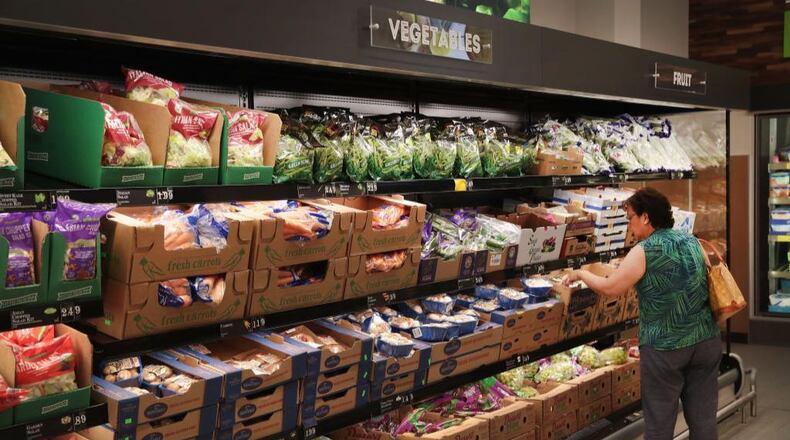Local grocery stores are racing to provide customers improved services and technology as more take advantage of online shopping.
It’s created a “grocery war” among the largest and smallest stores in an industry that produces $682 billion a year for local economies, according to the Food Market Institute. About 4.8 million people were employed by the industry in 2017.
Kroger, Dot’s Market, Meijer, Dorothy Lane Market, Aldi, Walmart and others already offer online shopping and home delivery in some areas, but industry experts say this won’t be enough if they want to compete with Amazon.
Since Amazon purchased Whole Foods for almost $14 billion in August 2017, there has been a major shake up in the grocery industry. Since then, the online giant has forced grocery stores to better their online products and services.
Online grocery shopping is expected to to top $100 billion in sales as early as 2022. While 60 percent of consumers currently prefer shopping in stores, about 70 percent of them are expected to purchase some grocery items online by that year.
Only 2 percent of grocery sales are currently online, but grocery analyst and former digital, supply chain and strategy consultant for Kroger, Brittain Ladd, expects that number to reach 20 percent by 2025.
Both a physical and online presence are important moving into the future of grocery, Ladd said.
“Grocery shopping is very personal for most people,” Ladd said, especially when it comes to products like dairy, meat, fruits and vegetables that customers want to “inspect and select.”
Grocery stores have worked to convince customers that they can pick the freshest and highest quality items through the use of personal shoppers, who will begin to understand exactly what each customer wants the more customers order.
>> Business: Basket maker Longaberger, parent file for Chapter 11 bankruptcy
The successful grocery store will be the one that can convince a customer that their pickup or delivery will have the perfect product every time, Ladd said.
"Until that happens, especially on items most personal to the customer, they'll continue shopping for that on their own," Ladd said.
About the Author
The Latest
Featured


